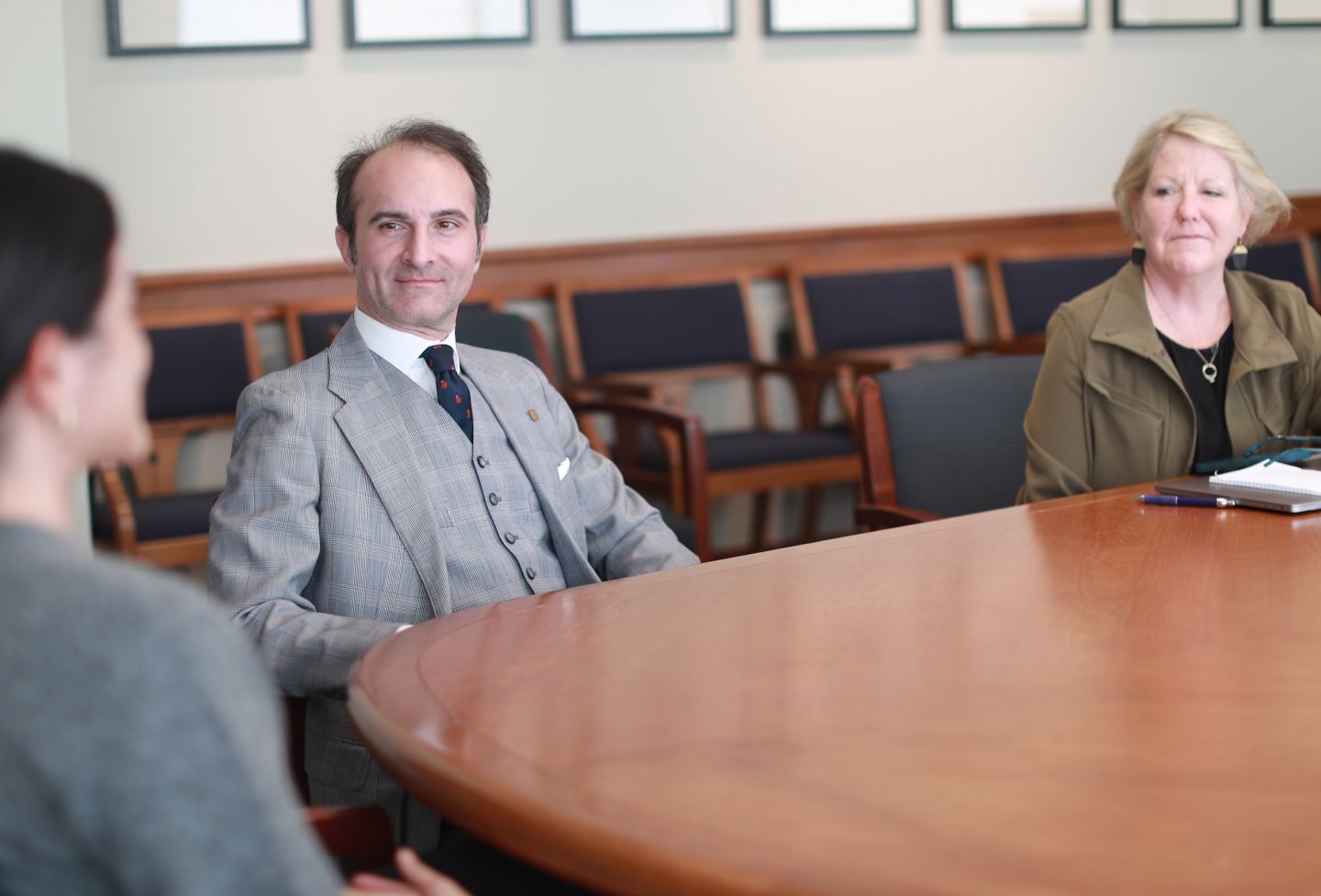There is currently a groundswell for criminal justice reform. At the same time, much is being written about the lack of hard facts and reliable data to inform these changes. This clinic aims to step into that void and take on collaborative projects to produce those hard facts and reliable data for all types of organizations that need it.
Clinic students will produce white papers, op-eds, research papers and/or testimony in support of legislation related to criminal justice reform. Students should expect to devote a minimum of 12-15 hours to clinic work each week.
Some projects may involve meetings/document review in other offices in the commonwealth of Virginia, so a car would be enormously useful, although not essential. Additionally, having a full day with no classes (preferably a Monday or a Friday) to travel/investigate will greatly enhance the clinical experience.
Upcoming projects for the 2023-24 school year include:

- Identifying cold and unsolved rapes and murders — in the U.S. and other countries — and linking them to a known (deceased) serial killer.
- Researching and identifying causes of racial imbalance on Virginia jury venires and proposing solutions on how to fix it.
- Analyzing the Virginia Parole Board’s public parole grant information (and additional data obtained from FOIA requests) to create a report responding to – and refuting – the Attorney General’s claim that Virginia’s number of parole grants is too high.

- Writing a motion challenging Virginia’s practice of requiring indigent defendants, who are ultimately found guilty, to pay the Commonwealth back for the cost of their public defender once they are released and financially stable.
Prior clinic projects include:

- Creating a website for the state of Virginia that maps out the current harm reduction and needle exchange services that are available to residents of Virginia in every county and major city. The site shares information about the current state of the law and how to obtain Narcan and administer it to others.
- Consulting with two of the leading law professors who research and write about gun regulations to determine the feasibility of implementing legislation to require gun owners to use low-capacity magazines.

Faculty
Deirdre M. Enright
Professor of Law, General Faculty
Director, Center for Criminal Justice
Director, Project for Informed Reform
Skills Taught
Collaboration, empirical research, policy analysis, nonlitigation writing
Grading
S/U (fall); H/P/F (spring)
Course Credits
8 (4 fall/4 spring)
Application
Instructors
In the News
News About the Project for Informed Reform
11.3.23 Clinic, Prosecutor Partner To Investigate Cases Linked to Disgraced Detective
5.13.22 Innocence Clinic Leaders Win UVA’s Collaborative Excellence in Public Service Award
7.6.21 UVA Law Launches New Project on Criminal Justice Reform
Recent Media Coverage
3.25.24 “What To Know About South Carolinian Serial Killer, Potential Ties to Crimes in SC” (The Post and Courier)
3.22.24 “UVA Professor Explores Possible Serial Killer Link in Unsolved Justin Turner Murder Case” (ABC 4 News)
11.6.23 “Man Exonerated Due to Criminal Norfolk Detective Supports New Review of Old Cases” (WTKR Radio)
11.2.23 “UVA Law Clinic Reviewing Decades of Convictions Linked to Disgraced Norfolk Police Detective” (WHRO Radio)
10.27.23 “Old Cases Connected To Corrupt Norfolk Officer To Be Reviewed by UVA Innocence Project” (The Virginian-Pilot)
10.27.23 “Norfolk Prosecutors Partner With UVA Innocence Project To Review Disgraced Detective’s Cases” (WTKR3)
10.27.23 “Cases Connected to Convicted Former Norfolk Police Detective To Be Reviewed by Prosecutors” (13News Now)

